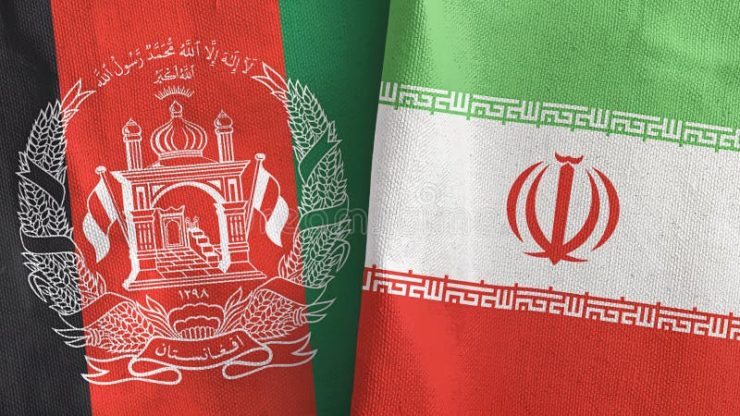
The ever-evolving world structure is, currently, seeing transformation from a unipolar to a multipolar world order. This transformation is caused by numerous factors which range from the failure of the UN to the military interventions and the unilateral decisions of the US in different global issues. Since the end of World War 2, the US has been responsible for almost 81 percent of global wars. Moreover, it has been the sole superpower of the world since the culmination of the Cold War. The United States has invaded several countries around the world in quest of its strategic and economic goals. It has turned many Middle Eastern countries into shambles over the years. Furthermore, the United States imposed sanctions on its rival nations under the pretense of protecting human rights, ignoring the fact that the country, itself, has committed a host of war crimes in Afghanistan, Iraq, Vietnam, and many other countries.
Currently, Afghanistan and Iran are also encountering military and economic aggression by the United States. The latter is targeting them to achieve its regional and global ambitions. This has impinged on their already stagnant economies. Afghanistan has been struggling with its economy since the withdrawal of the US forces. Afghan assets worth almost 3.5 bn USD are frozen in Switzerland due to the sanctions imposed by the United States. Moreover, the new Taliban government has not been accepted by any country in the world, let’s backlash by the West and its allies. Therefore, the Afghan government is finding it hard to establish substantial trade relations with other countries.
On the other hand, the United States has also imposed sanctions on Iran, which hinders its trade relations with the Western countries. Resultantly, the two countries, Iran and Afghanistan, have decided to mend their relations. They hold enormous economic and trade potential. Afghanistan possesses mineral resources worth over 1 trillion USD. While Iran holds massive fuel reserves. Moreover, Iran serves as a key for the landlocked Afghanistan’s trade with the Gulf States and different countries around the world through its sea route. The Taliban government in Afghanistan also seeks advanced technology to cope with their security and economic needs. This also brings Afghanistan closer to the technologically advanced Iran. Although the two countries had serious clashes in the past, they are mending their relations to achieve their mutual interest and decrease their dependence on the West.
Iran Chamber of Commerce, Industries, Mines, and Agriculture (ICCIMA) hosted a high-ranking meeting with Afghan officials. The latter demonstrated great interest in the potential of Iran’s private sector. Vice President of ICCIMA, Payam Bagheri, held that Iran and Afghanistan possess massive potential for enhancing their economic and trade relations. He also expressed the readiness of ICCIMA to explore multiple venues of cooperation between the two sides.
In this meeting, both countries signed five different economic agreements to expand mutual economic cooperation and trade. Cooperation in multiple sectors, including free trade zones, civilian aviation, mining, transportation, and Iran’s Steel Company were included in these agreements. Hassan Kazemi Qomi, Iran’s special representative to Afghanistan, while addressing a meeting, expressed Iran’s willingness to increase the bilateral cooperation to stabilize its neighbor, Afghanistan, and to decrease its problems. He further mentioned the agreement between both countries to establish the Afghanistan-Iran trade chamber, to facilitate collaboration in the transit and agriculture sectors. Promoting bilateral interest and exploring trade potential between the two countries is the main rationale of this chamber. This joint venture also aims to promote, economic institutions, companies, and economic institutions to foster long-term economic relations between Iran and Afghanistan.
Nooruddin Azizi, Acting Minister for Commerce and Industry of Afghanistan, mentioned that Afghanistan seeks to increase bilateral trade with its neighboring Iran by up to 10 billion USD. He further mentioned that Iran-Afghan relations will make Afghanistan independent of the West, as Iran is one of the technologically advanced countries in the region. Bilateral cooperation between Iran and Afghanistan will prove mutually beneficial by elevating their economies. This bilateral cooperation will help Iran to protect its domestic and regional interests. Furthermore, this collaboration will assist Iran in protecting the Shia minority in Afghanistan. The latter also provides a great market for Iran’s oil. Moreover, cordial Iran-Afghan relations can also expand Iran’s outreach to the Central Asian Region. The Iran-Afghan partnership is mandatory for the former to utilize the maximum capacity of the Chabahar port. It can also help in connecting Chabahar port to China via the Belt and Road Initiative (BRI).
On the other hand, this cordial relationship is also helpful for Afghanistan. The latter can use Iran’s technological capabilities to extract its minerals. Rising Iran-Afghan cordiality will also cease increasing the monopoly of China in Afghanistan. These ties will provide Afghanistan access to warm waters and assist it in establishing trade alliances with the Gulf states and the rest of the world. Both countries have multiple converging interests and views, and their relations have been further cemented by the Western sanctions. Iran and Afghanistan, both, are among some of the great advocates of multilateralism. Both countries are showing an increasing tilt towards Russia and China. Iran is already a member of BRICS. Afghanistan has also demonstrated significant interest in BRICS membership. This has further strengthened their ties and has increased the prospects of their partnership.
Abbas Hashemite – is a political observer and research analyst for regional and global geopolitical issues. He is currently working as an independent researcher and journalist, exclusively for “New Eastern Outlook”.